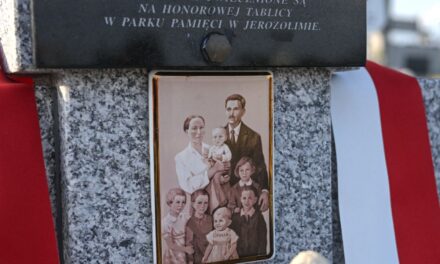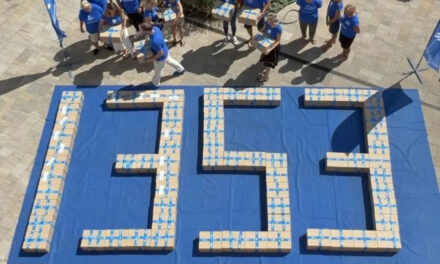Wit? Blasphemy? I'm not sure. Written by Zsolt Ungváry.
The chip advertisement "offended all the Catholics of the world", index.hu reports about an Italian television advertisement in which nuns offer salty, crispy fried potato petals. At first reading, it seems shocking, seeing the Christian persecutions that are becoming a daily practice in Europe, one is overcome with indignation and anger. I'll click on the thirty-second short film anyway.
The nuns are coming to mass. During this time, one of them (perhaps the abbess?) would prepare the chalice containing the Eucharist, turn it upside down, but it appears to be empty. For this, he takes out a bag of chips. Cutting. The nuns are preparing for sacrifice, the old man - a bit senile? – the priest places the wafer in the mouth of the first woman, the nun bites it in two, her face bursts with joy. Pap looked suspiciously into the cup: there were chips in it. Everyone looks reproachfully to the side, where the nurse just now is enthusiastically crunching the potato petals from the bag.
Am I offended? I do not know.
The publicist usually reveals. I'm unsure now. index.hu quotes the head of the Catholic group that oversees Italian radio and television, who classifies the case as blasphemy. "Christ has been reduced to a potato chip," reads the accusation. The ad has been pulled from TV, although it may still be available online.
For two thousand years, Christians have been used to being persecuted, humiliated and ridiculed, sometimes more gently, sometimes more harshly, sometimes only locally, sometimes in larger areas.
If Jesus Christ had not predicted all of this very precisely - "(...) they will lay hands on you and persecute you. They are at the mercy of the synagogues and put in prison, dragged before kings and governors for my name" (...) - we could even worry that we are fighting for the acceptance of a weak god against eternal odds. But no matter how lost our situation seems, even after two thousand years we can quote the words spoken to Tamás with confidence and hope.
“You believed because you saw. Blessed are those who do not see and yet believe.” (Jn. 20, 29)
Now, when we live in the age of the fulfillment of freedoms, it is as if we have started to play different rights against each other in order to reduce or eliminate them. Freedom of speech lost the most. Certain expressions, contents, even suggestions and hearsay are already punishable in certain places. Sooner or later, every community will have its grievances, due to which - if the others are administratively protecting their interests - they too demand a ban. We Christians have been (and are) subjected to so much injustice that it seems like a natural reaction: if they hurt us, let them persecute them with the same determination.
However, this is a trap that will lead to the complete impossibility of freedom of speech and opinion, and since power and strength are in the hands of those whose worldview is radically different from ours (perhaps I can say that it is downright satanic), it serves their interests if we stand up into this forbidding-moaning-victim pose.
In addition, it leads you astray, as they are constantly bombarding you with much more dangerous content, 24 hours a day, often unnoticed. If this advertisement is banned, it creates the impression that Christians "dominate" the media, politics, public life, the "Christian thought police" endangers freedom, and there is no other anti-Christian program, because if there were, it would be banned just like that. (It was very similar in the 1990s, when the film The Last Temptation of Christ appeared on Hungarian television the following week, against which the church protested. It was eventually taken off the air, and so many liberal atheists cursed the Christian course and the unlimited influence of the church with bloody mouths, while the media poured out anti-Christian content in droves. This is the only work - and, in my opinion, that can be accepted from a Christian point of view - was not allowed to be played.)
I think that this advertisement – hiding in a flood of advertisements, reaching only a few, a tiny, quickly passing wave of the sea of information – is rather witty, and otherwise very Italian light and humorous. The whole environment (with the young nuns, the cozy milieu) is attractive, homely, not harsh or even repulsive. The choice of topic itself supports what we are talking about: in Europe, an atheist is also a Christian. A familiar environment for the receiver, a familiar act, a joke that needs no explanation; we can really joke with what we know and love.
Precisely those who are deeply involved in this will not think for a second that the Lord's body can be replaced with potato petals.
Since those pieces of paper clips - we saw, they got there from a plastic bag in a store without the priest's knowledge - were not transformed. It would have been blasphemy to do something ugly with the truly consecrated wafer. But even those who do it should have trouble. It wouldn't hurt God either, except for those who are harming their own chances. In fact, our exhortation is primarily for them, namely because we have been commanded to spread the glad tidings among the Gentiles as well, and we bear responsibility for such unfortunate misguided ones in possession of the known truth.
Such occasions are good for thinking through the pillars of our faith and engaging in dialogue with those who do not yet understand. Let's not ban or hate (even if this is our first reaction), but try to educate and convince.
And because we are right - because we are right - we are not risking anything. On the other hand, if everyone demands restrictions, the truth will also be banned, as in the case of Päivi Räsänen, a Finnish politician who quoted the Bible and was sued for it.
But we should never allow this!
Featured Image: Screenshot












